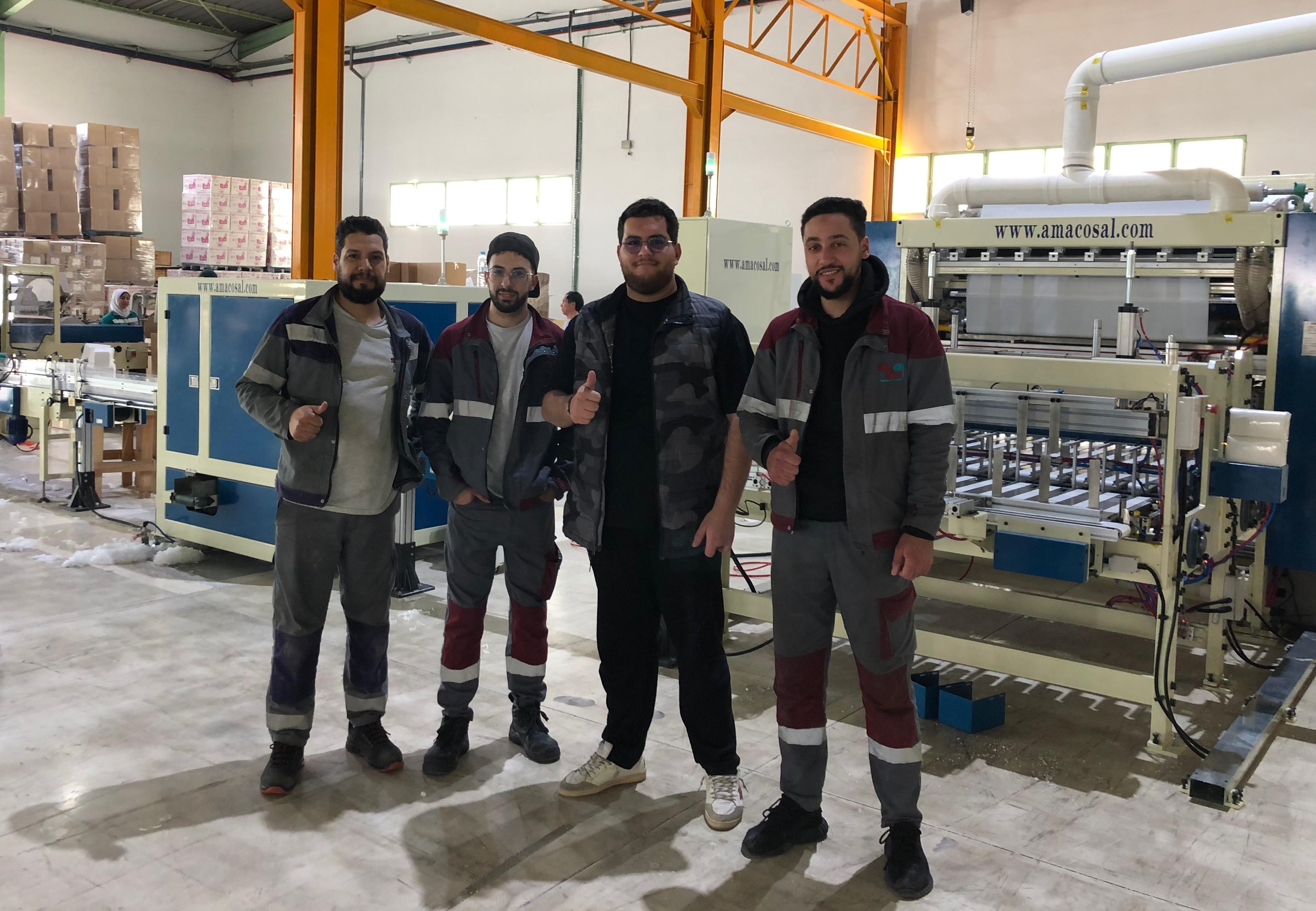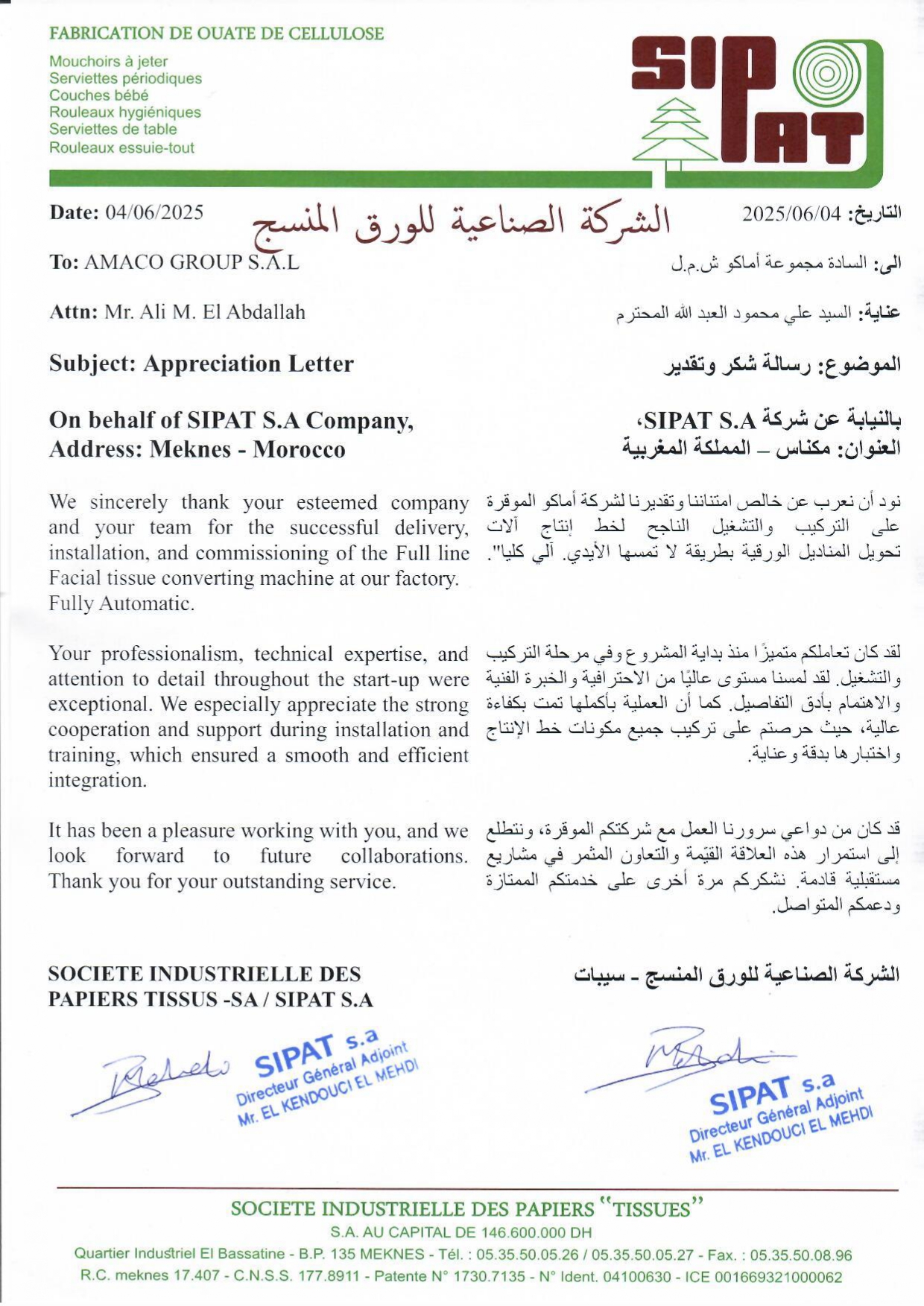Morocco’s SIPAT and Lebanon’s AMACO: Strategic Collaboration and Full Automation of Tissue Production Lines

Morocco’s SIPAT and Lebanon’s AMACO:
Strategic Collaboration and Full Automation of Tissue Production Lines

Beirut, August 12, 2025 – SIPAT, the leading hygiene paper manufacturer in Morocco and North African markets, has completed a strategic collaboration project with AMACO Group, a global leader in tissue paper machinery. The project entailed a comprehensive upgrade of SIPAT’s tissue production lines, enabling fully automated, hands-free operations achieving what is known in the industry as “full automation” or “automated manufacturing,” commonly referred to in the tissue sector as “with no hand contact.”
SIPAT specializes in the production and processing of tissue paper and offers a wide range of products tailored to meet market needs. With the successful implementation of this project in collaboration with AMACO, SIPAT’s production lines and products are now fully automated from raw material handling to manufacturing, packaging, and market distribution. This project supports SIPAT’s expansion strategy on three levels: improving product quality, enhancing production processes, and accelerating market expansion.
Ali El Abdallah, Chairman of AMACO Group, stated that tissue factories worldwide are undergoing a major transformation toward increased reliance on automated production lines and advanced technological features.
He added: “This development at SIPAT is not just about keeping up with global tech trends it’s a strategic investment that offers a wide array of benefits, enhancing efficiency, quality, and even the working environment, while paving the way for innovation. The production lines provided by AMACO come with numerous advantages. First and foremost, increased productivity is the most significant benefit of automation. Companies using these lines can operate factories non-stop, 24/7, with speeds and precision beyond human capability. Second, this shift enables highly efficient responses to rising market demands. Third, automating the production process shortens production cycles and enhances companies' global competitiveness."
Industrial automation is well known for ensuring consistent and uniform product quality. Machines don’t tire or make errors, significantly reducing defects. This consistency not only boosts consumer confidence but also cuts waste and costs related to rework or defective product replacement. Automated lines also lead to major long-term operational cost savings by minimizing the need for human labor in repetitive or hazardous tasks, reducing material waste and energy consumption, and optimizing resource use. Moreover, these production lines offer high flexibility, adapting easily to business or product design changes. They can be reprogrammed quickly to produce different products or adjust operations, allowing companies to respond swiftly to market shifts and evolving consumer needs.
El Abdallah concluded: “Automation is not merely a production upgrade; it is the gateway for companies to enter a technological path of continuous innovation and new-tech adoption. It strengthens their capabilities and market position, opening new opportunities for design, development, expansion, and competitive leadership.”








